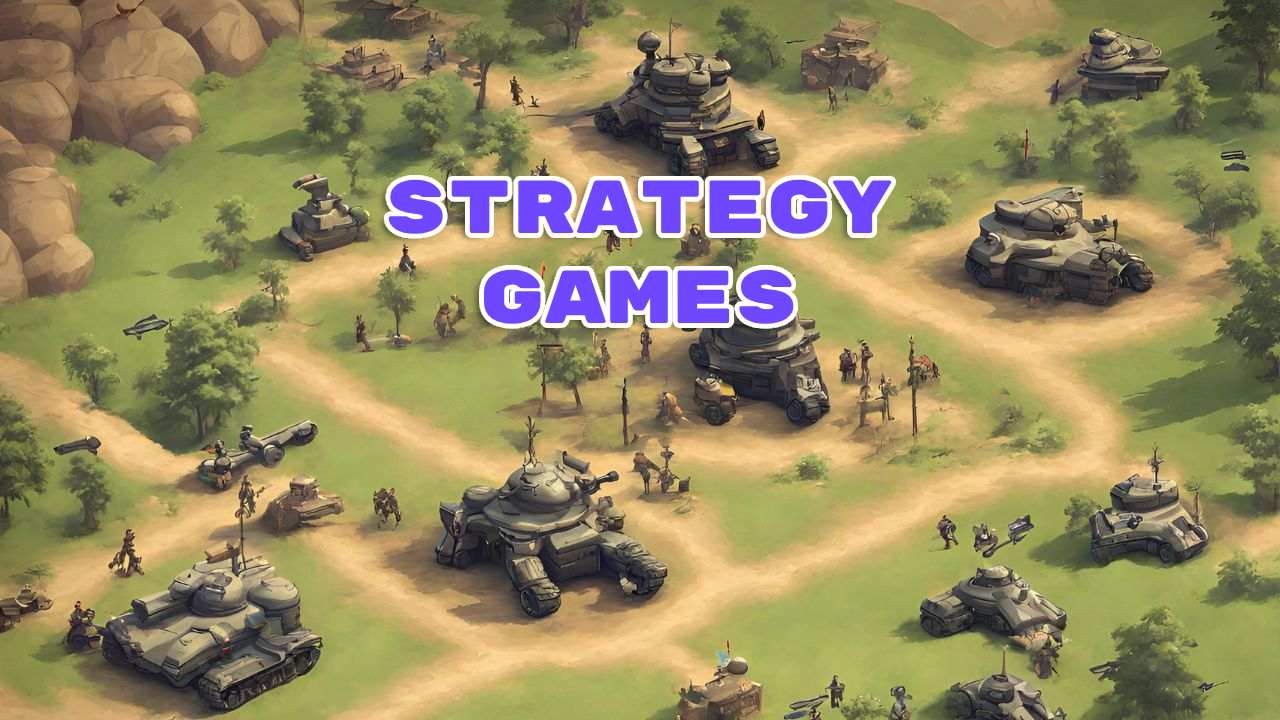In the huge landscape of the gaming industry, strategy games have consolidated their solid positions as one of the captivating video game genres for gaming enthusiasts.
Unlike other fast-paced games such as role-playing games that require the player’s immediate action, strategy games are rather about making strategic decisions and unfolding consequences across virtual battlefields.
As you delve into the world of strategy games, you are about to embark on adventures that take you to new dimensions.
Let’s explore their unique characteristics and the steps they lead you to!
Overview of Strategy Video Games
As its name clearly defines, a strategy game obtains a high level of strategic elements and requires players to make a series of tactics, and strategic actions to fight against opposite opponents to achieve victory.
But how did this game type first emerge in the past?
Actually, strategy video games trace their root from early board games such as chess, checkers, and Go. The concept of these games was about two players against each other through strategic moves. Depending on the complexity, these games could last ranging from minutes to hours.
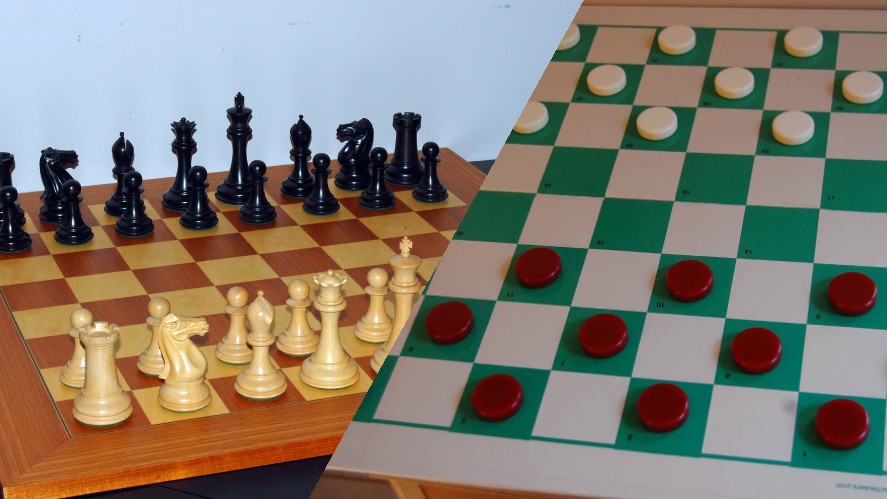
The advent of technology and computers in the mid-20th century marked a new milestone in the era of strategy games.
The initial console strategy game, called Invasion, debuted in 1972. It played like a game similar to Risk.
In 1980, the release of “Computer Bismarck” was regarded as one of the first digital wargames.
After that time, during the 1980s and 1990s, various strategy video game titles emerged to adapt to the variable demands of players.
Specifically, some companies such as SSI, Avalon Hill, MicroProse, and Strategic Studies Group developed many strategic games.
Among them, Reach for the Stars was a prominent 4X strategy game to expand the interplay between economic development, technological advancement, and conquest.
Later, as technology has continued to advance, strategy games have evolved in both visual and conceptual ways.
The enhancement from 2D to 3D graphics has contributed to the immersion of players, which offers players more stunning virtual battlefields.
What’s more, games like StarCraft (1998) and Age of Empires II (1999) provided players with the new concept of multiplayer, where they could engage in strategic battles against real opponents.
Types of Strategy Games
Strategy games come with a wide array of subgenres to adapt to players’ styles and preferences. Each sub-genre presents a distinctive challenge and engages players in different strategic approaches.
Real-Time Strategy (RTS)
Quick responses are required in this game genre, as all the action in the game is constant and players have to make decisions in fast-paced environments.
The nature of these games is not incremental progress but rather simultaneous gameplay, which immerses players in immediate actions and the changing game states in real time.
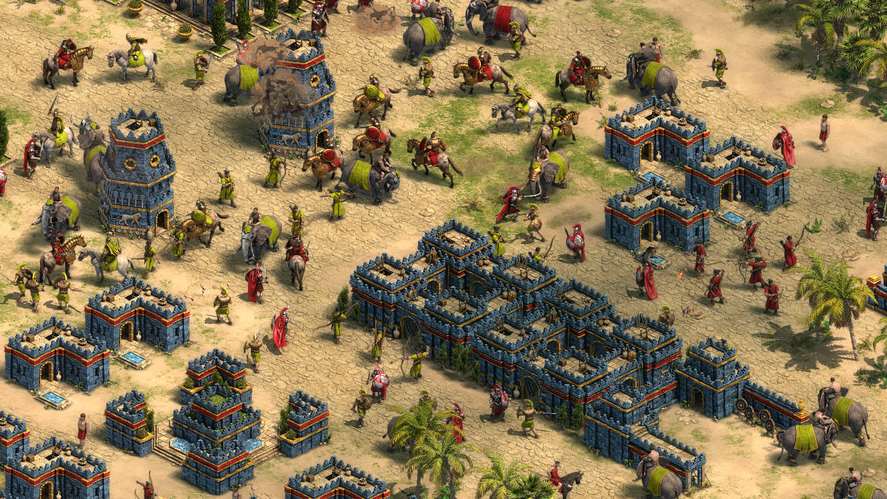
Typically, the gameplay elements of RTS games involve base building, resource gathering, and direct control over units.
That said, real-time strategy games might put players under unexpected pressure as they require players to quickly decide how to manage resource and time attacks.
One popular example of this game subgenre is Age of Empires, in which you play the role of a commander and architect.
Set in the historical landscape, your task is to forge a thriving civilization from scratch. You’re about not just defending against adversaries, but also managing resources to build structures and cities.
Turn-Based Strategy (TBS)
In contrast to RTS, turn-strategy games focus on a more structured approach. In these games, players take their turn when playing instead of simultaneous gameplay.
So, it requires players to have more long-term planning and strategic decision-making to adapt to any opponent’s move.
This way, every decision becomes important, as each move can contribute to the unfolding narrative of the game.
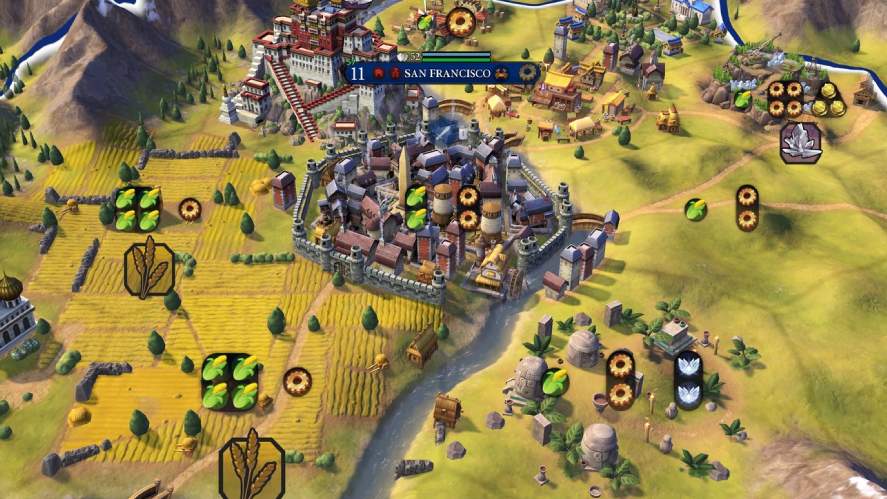
If you’re looking for top TBS games of the moment, you should try Civilization VI. It is the newest game in Sid Meier’s well-known series.
In this game, you can select from a wide range of societies from different historical periods, and then guide them through important moments in time.
As you are the head of a chosen civilization, you need to make smart decisions to help your society grow and succeed.
That said, the turn-by-turn feature comes into play when you take turns to make decisions, and things happen one after the other in a sequence, which eventually contributes to the overall story.
Grand Strategy and 4X Games
Unlike previous game types, this sub-genre adds a more complex layer to the world of strategic games.
It introduces players to the 4X principles of eXplore, eXpand, eXploit, and eXterminate, which often come into play when players control the empire.
To be more specific:
- eXplore phase means you get to discover new worlds or civilizations.
- eXpand phase is all about growing that place to an actually solid empire.
- eXploit to use resources smartly to keep your economy sustainable.
- eXterminate principle is not just about warfare; it also includes strategic planning, diplomacy, and alliances to ensure overall dominance.
That said, Grand Strategy and 4X Games often mix diplomacy, economics, and military strategy. So, you need to be good at negotiating, handling money, and planning military moves.

A notable example of this genre that should pay attention to is Age of Wonders: Planetfall. In this game, you engage in diplomatic relations with diverse factions, manage your money and build stuff, and plan battles with soldiers.
So, as we explore various sub-genres of strategy games along with their examples, you might find yourself wondering: Which is the best strategy video/computer game and why?
Well, the answer might vary as it also depends on different tastes and preferences.
However, through a quick survey, some might argue that Sid Meier’s Civilization series, especially Civilization VI, stands out due to its deep and intricate gameplay.
What makes it cool is that you can play as different civilizations, each having its unique strengths.
Civilization VI keeps you hooked with its ‘just one more turn’ charm. It’s not just about making friends or enemies; it’s a game of skills. You need to think about how your actions affect the world and work towards achieving various goals. This adds more fun and complexity to the game.
Other popular choices for the best game include Crusader Kings 3, StarCraft 2, Total War: Warhammer 3, and more.
Key Components of Strategy Games
So, what fundamental elements can shape strategy games, which allow players to immerse themself in the art of strategic thinking?
Game developers typically design strategy games that include resource management components, where players have to gather and allocate resources to create units, buildings, or even factories.
Depending on game titles, the quantity and types of resources may vary, ranging from large quantities to fixed quantities of units at the beginning of the game.

However, the objective remains the same – players need to balance the resources and make a careful plan to prioritize which aspects at a particular time to achieve the final goals.
You’ll often find technology tree features in these games. This acts as a roadmap of advancements in your gameplay. You can discover different branches of the tree and unlock new units, and buildings.
So, you can be curious and willing to explore the exciting paths, as well as be strategic to progress effectively throughout the game.
Because every move can affect your overall strategy and eventual outcomes, it’s better to think ahead and plan your actions carefully, both in short-term battles and long-term game progression.
In single-player modes, you focus on mastering your strategies by defeating several artificial intelligence opponents. This mode allows you to progress through the game at your own pace, and refine your tactics without the pressure of real-time competition.
On the other side, multiplayer provides a more competitive environment, where you face real human opponents. The strategies become more dynamic and unpredictable due to the human interactions.
Cultural Impact and Popularity
Strategy games have brought positive impacts to the gaming industry in many ways.
Firstly, these games not only provide players entertainment as well as decision-making or self-analysis abilities but also influence how game developers approach game design.
Developers have incorporated strategic elements into different game types and developed more innovative gameplay mechanics that extend beyond the genre.
Secondly, this genre fosters huge and vibrant communities, including online forums, discussions, and social media.
In these places, passionate players come to share their passion for strategic titles and virtual battlefields. People discuss new games, recent updates, and strategies, and also create fanmade content to express their love for the game.

This way, they form a lively community, enhance the community spirit, and also spread inspiration for others to come and join in their excitement.
Furthermore, strategy games have become a driving force in esports and competitive play. Due to the depth and complexity of the gameplay, these games challenge players to conquer the complex game mechanics, optimize their resources, and make strategic decisions to outsmart their opponents.
That said, strategy games turn into a serious and exciting part of competitive gaming, encouraging skilled players from around the world to compete in various tournaments and events such as IEM Cologne (CS:GO), ESL ONE (DOTA 2), League of Legends Weltmeisterschaft (LoL Worlds), The International.
Choosing the Right Strategy Game
If you want to start playing a strategy game, choosing the right one can boost your gaming experience and overall enjoyment.
So, you should consider factors such as difficulty level, theme, and personal play style.
A game with simpler mechanics will be more suitable for beginners who seek the joy of starting to play strategic games, while other seasoned players will prefer games with more challenges and higher difficulty levels.
Similarly, the game has a theme and play style that aligns with your preference, which can enhance your gaming experience and keep you for a longer period.
So, if you are new to strategy gaming, you should opt for Civilization VI, which provides you an excellent entry point with its turn-based mechanics.
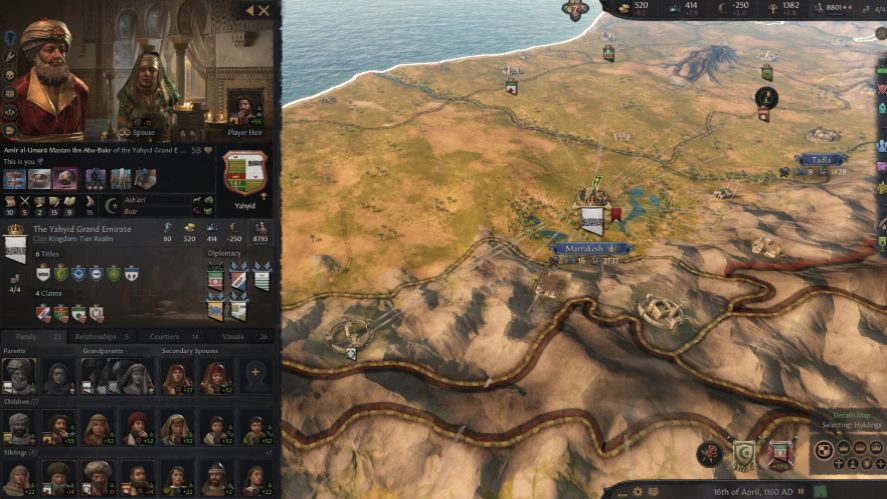
Or if you prefer a historical grand strategy, then Crusader Kings 3 is an optimal selection.
On the other hand, if you are an experienced player who seeks the challenge, explore titles like Europa Universalis IV for their deep historical complexity or Offworld Trading Company, which provides a unique experience in economic strategy.
Tips and Strategies for Players
If you’re a newcomer to the genre, you should follow this beginner’s guide to navigate the fun.
1. Choose your game wisely
As previously mentioned, choosing the right game at your levels can provide a gentle introduction and not overwhelm you at first.
2. Learn the fundamentals
Read all the game’s tutorials and introductory materials to make sure you understand the game thoroughly. Also, familiarize yourself with the game’s interface, control buttons, and basic tactics.
3. Study Strategies and Tips from Fellow Players
Almost all stratey games have communities and online forums that include valuable resources from experienced players, such as guides, videos, strategies, and insights. You should leverage all these resources to obtain tactics from early to late game.
4. Practice and Patience
After capturing all theory, it’s time for you to practice in a real strategic campaign. Take your time to analyze situations, improve your skills, make decisions, and experience all the outcomes.
Don’t be afraid of failures as they’re part of the learning process. As for experienced gamers, the strategies become more advanced.
5. Master Resource Management
You should know how to use and manage your resources wisely, like building things, training units, or doing research, all of them can lead you to the overall victory.
6. Stay Flexible
Even if you had a great strategy, sometimes things in the game change. So, you should be flexible and ready to deal with any unexpected challenges.
7. Learn from Others
You can totally learn from other players, including your opponents. You can analyze their moves, understand how they play, and then adapt with smarter ways to beat the challenges.
Moreover, you can find smart strategies from the game communities, where experienced players share their insights and tips.
Future of Strategy Games
Thanks to continuous technological advancements, we can expect exciting possibilities for strategy games in the near future.
AI, or Artificial Intelligence will provide players with more dynamic experiences by adapting to every move of players’s strategic gameplay.

Also, with Virtual Reality (VR), players will soon find themself immersed in the strategic worlds that actually happening around them. With the assistance of VR gear and controllers, the level of immersion promises to add a new dimension to players’s gaming experience.
What’s more, AR or Augmented Reality enhances the real world with computer-generated information. This creates a blended experience where virtual elements coexist with the physical environment.
So, as technology keeps evolving constantly, future strategy games will look better and have more exciting features. Video game publishers are going to go extend the boundaries and introduce new elements and innovations to captivate players even further.
Conclusion
Strategy video games offer a diverse and immersive gaming experience that adapts to lots of players’ preferences.
From quick decisions in real-time strategy to thoughtful planning in turn-based games. The genre has captivated players in the gaming world where strategic planning matters.
Looking to the future, technological advancements promise even more exciting possibilities for strategic indie games.
So, embark on strategic adventures, explore diverse virtual battlefields, and discover the endless thrill that strategy video games bring to you!

